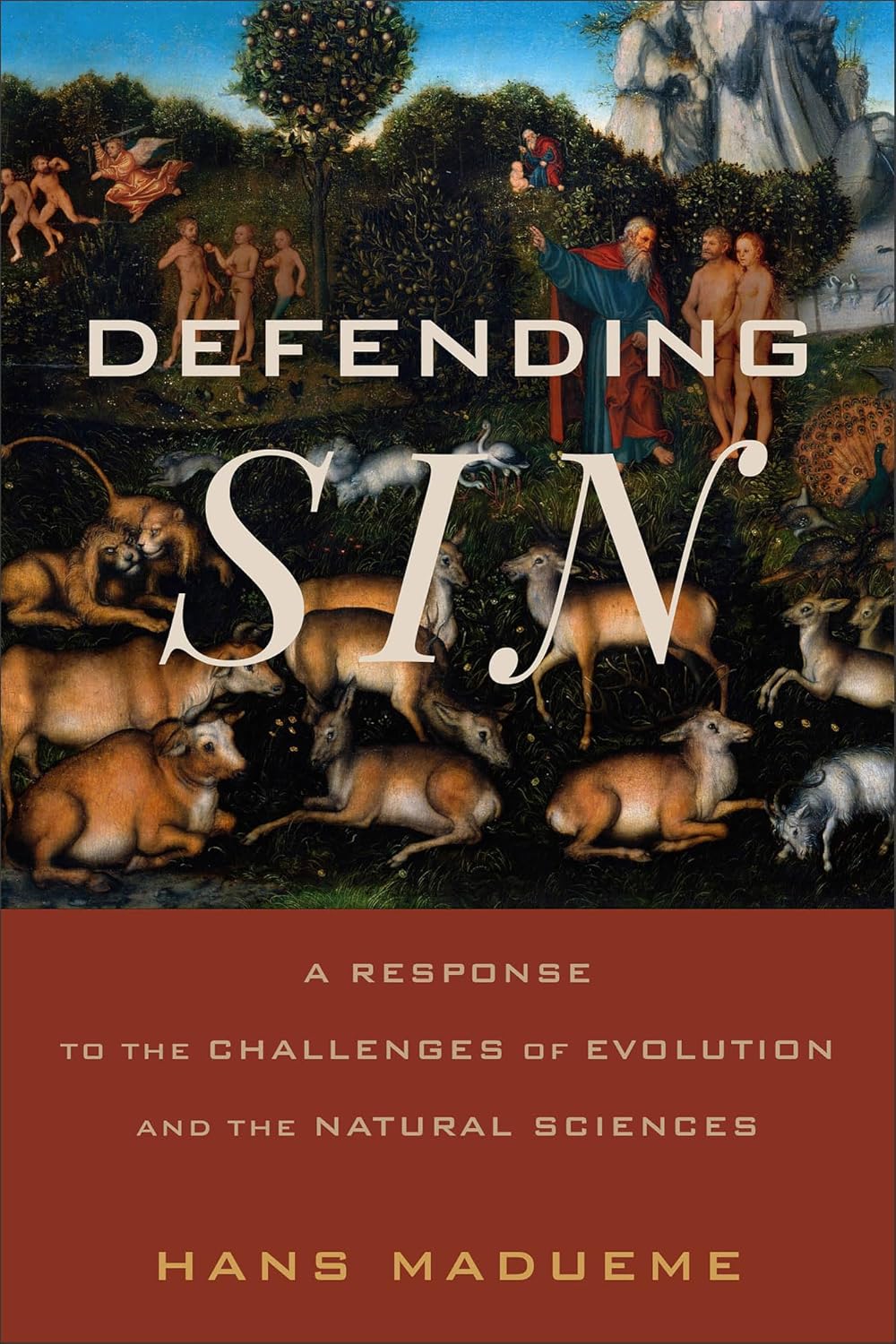Science is by nature fallible and subject to revision. Theories widely held today may be dismissed in the near future as our knowledge of the natural world grows. History offers numerous examples of now-discarded beliefs: the earth is the center of the universe, maggots spontaneously generate in rotting meat, the body is governed by four humors, and Newtonian mechanics can explain the entire universe.
As Thomas Kuhn argues in The Structure of Scientific Revolutions, scientific theories and paradigms change, often suddenly, with new evidence and revised models. What scientists “know” today may be swept into the dustbins of intellectual history tomorrow. This is true of theories about the origins of the universe and human life that seem to conflict with certain readings of Genesis.
Of making many books about reconciling Darwinism and Christianity there is no end. Many such works suggest we abandon long-held doctrines or revise them to fit contemporary scientific findings and paradigms. In Defending Sin: A Response to the Challenges of Evolution and the Natural Sciences, Hans Madueme—a trained medical doctor who’s now a professor of biblical and theological studies at Covenant College—attempts to regain some of the doctrinal ground lost in the discussion between Christian theology and the natural sciences. He especially focuses on hamartiology, the doctrine of sin.
This book is, fundamentally, an apologetic for traditional Christian teaching about creation’s original goodness and humanity’s fall.

Defending Sin: A Response to the Challenges of Evolution and the Natural Sciences
Hans Madueme
Defending Sin: A Response to the Challenges of Evolution and the Natural Sciences
Hans Madueme
In this major contribution to the field of science and religion, Hans Madueme demonstrates that the classical notion of sin reflected in Scripture, the creeds, and tradition offers the most compelling and theologically coherent account of the human condition. He answers pressing challenges from the physical sciences on both methodological and substantive levels. Scholars, pastors, students, and interested lay readers will profit from interacting with the arguments presented here.
Five Aspects of Biblical Realism
At the center of Madueme’s apologetic is a set of methodological assumptions he calls “biblical realism.” He identifies five key components of this approach that shape a Christian understanding of the relationship between faith and science.
First, biblical realism asserts that supernatural realities actively operate within God’s world. Even scientists who affirm the supernatural often pursue knowledge through methodological naturalism, which assumes “only natural explanations are permissible in scientific research” (45). But this approach can’t account for God’s supernatural intervention in history, whether we’re speaking of virginal conception, resurrection from the dead, or direct acts of creation. In contrast, Madueme upholds both the regularity of the natural world and the possibility of direct intervention by God without embracing fideism.
Second, biblical realism upholds the principle of dogmatic inerrancy, which states that biblical passages are authoritative even when they appear to conflict with current science. Madueme contrasts this view to what he calls “evidential inerrancy,” which avoids conflict between Scripture and science by “reassess[ing] the relevant biblical texts, perhaps by invoking some kind of accommodation, reinterpreting the text, or, more radically, downgrading biblical authority” (55). This can lead to dismantling inerrancy itself.
Third, biblical realism recognizes scientific fallibilism—the idea that the natural sciences, while valuable, are inherently limited due to human finitude and fallibility. Madueme argues that because science is subject to these limitations, we require the corrective influence of divine revelation to fully understand the world.
Fourth, biblical realism requires doctrinal confidence among Christians. According to Madueme, “Central doctrinal beliefs receive their epistemic warrant from Scripture and should therefore not be revised (or abandoned) in the face of conflicting scientific theories” (45). In a world where we often allow science to direct our theology, Madueme says we have the freedom to let Scripture correct our science.
Finally, biblical realism promotes an eclectic method that evaluates scientific theories on an individual basis. This careful approach is based on the goodness of natural sciences, the reliability of Scripture, the interconnectedness of theological beliefs, and the fallibility of scientific conclusions.
Faith and science are seen as complementary rather than contradictory, each playing a distinct role in the pursuit of truth.
While there may be conflicts, such as between Darwinian evolution and some views of the biblical account of creation, the Bible doesn’t contradict most scientific understandings relevant to everyday life. Biblical realism encourages a balanced view where faith and science are seen as complementary rather than contradictory, each playing a distinct role in the pursuit of truth.
Gracious Polemics
This approach to doctrine and exegesis must be wielded carefully. Therefore, Madueme distinguishes between essential and nonessential doctrines.
For example, Madueme leaves room for disagreement between Christians about the earth’s age. Yet he rightly observes that historic doctrines about Adam, original goodness, and the fall are essential to a proper understanding of Scripture’s grand narrative. Even if science supports theories that contradict the original goodness of creation, we can’t dismiss this doctrine without destabilizing the coherent core of Christian truth. He asserts such doctrines aren’t only scientifically justifiable but also integral to our understanding of the gospel.
Even if science supports theories that contradict the original goodness of creation, we cannot dismiss this doctrine without destabilizing the coherent core of Christian truth.
The doctrine of sin is the book’s central focus. Yet much of what Madueme says about the relationship between science and biblical authority applies to other apparent conflicts. He makes an intellectually robust case for reading the Genesis creation account as a literal six-day event. Yet he doesn’t resort to mean-spirited polemics or speculative exegesis. Even Christians who prefer alternative explanations of Genesis’s days should appreciate the grace and clarity of his positions. Defending Sin is an attempt to argue to reveal truth rather than to win at all costs.
By defending the biblical account of the fall, Madueme’s work serves a larger purpose. He makes the case that Christians can embrace science without capitulating on matters that Scripture and the Christian tradition have agreed on for millennia. Even those deeply invested in the natural sciences don’t have to be embarrassed by Genesis. This book is remarkable for the range and depth of Madueme’s theological argument as he argues against materialistic assumptions about the world, while still celebrating the true knowledge we gain from science. Not everyone will be convinced by his theological method, but he creates a clear path forward for those who want to take science seriously and stand firm on the tradition.





























